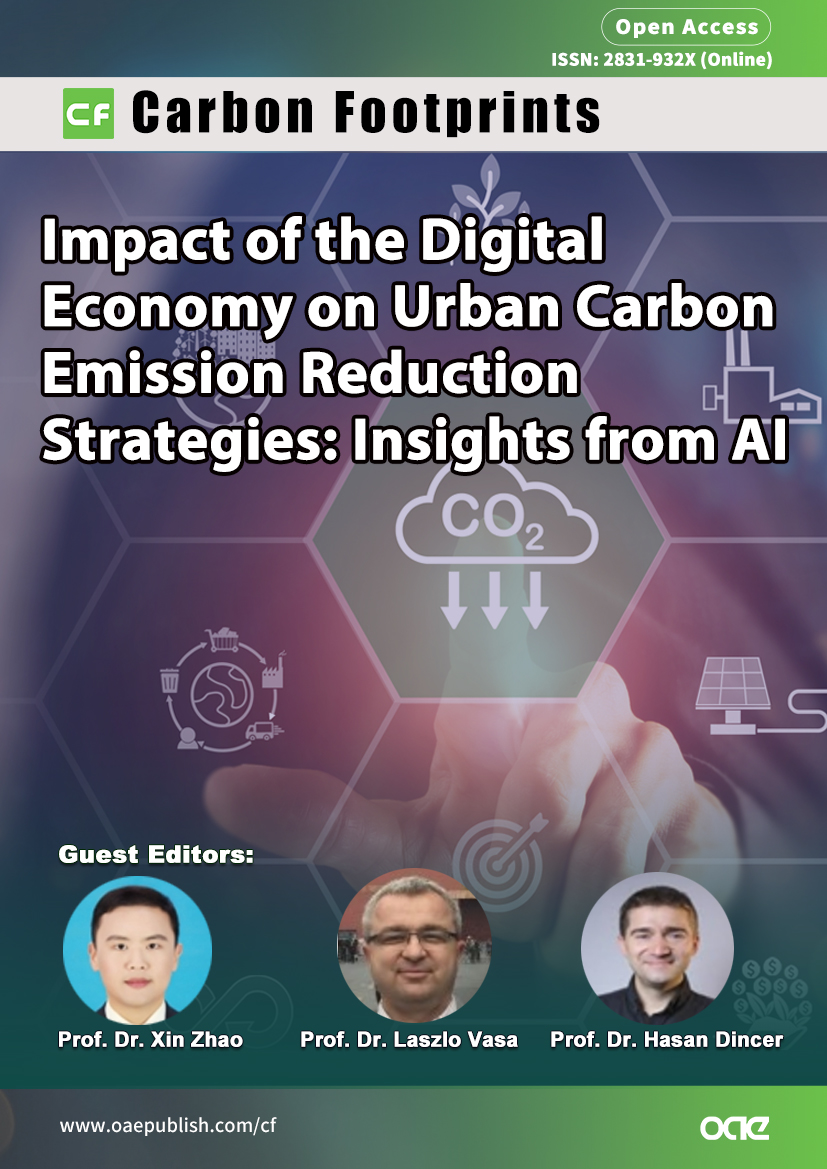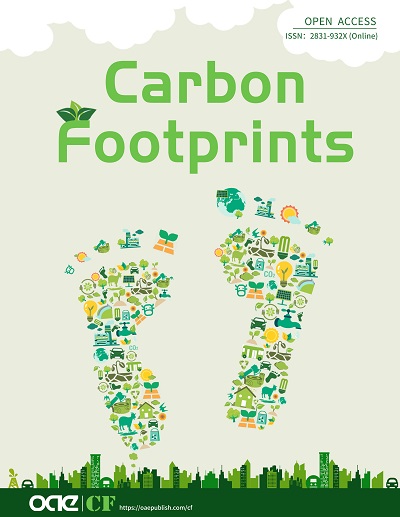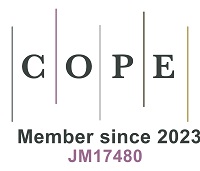
Topic: Impact of the Digital Economy on Urban Carbon Emission Reduction Strategies: Insights from AI
Guest Editor(s)
Prof. Dr. Xin Zhao
School of Statistics & Applied Mathematics, Anhui University of Finance & Economics, Bengbu, Anhui, China.
Special Issue Introduction
Amid escalating concerns over climate change, the imperative to reduce carbon emissions has reached a pivotal juncture. The latest report from the International Energy Agency (IEA), published on March 2, 2023, reveals a disheartening trend: global energy-related carbon emissions surged by 0.9% in 2022, reaching a staggering 36.8 billion tons. This alarming increase surpasses the thresholds required to meet the ambitious targets outlined in the Paris Agreement. Particularly concerning is the significant contribution of urban areas, accounting for up to 75% of total emissions. Consequently, there is an urgent need to catalyze low-carbon transitions within cities.
Recognizing the transformative potential of the digital economy, particularly artificial intelligence (AI), in revolutionizing carbon emission reduction strategies, this Special Issue aims to explore the intersection of AI and sustainability. The convergence of AI-driven technologies with traditional carbon emission reduction strategies presents unprecedented opportunities for innovation and efficiency. By harnessing the power of AI, cities can optimize resource utilization, streamline operations, and implement targeted interventions to effectively mitigate carbon emissions.
Proposed topics include, but are not limited to:
● Exploring the impact of AI-driven technologies on urban carbon emission reduction strategies;
● Harnessing big data analytics and machine learning for optimizing low-carbon urban infrastructure;
● Evaluating the role of digital platforms in promoting eco-friendly consumer behaviors and reducing carbon footprints;
● Assessing the efficacy of AI-powered predictive modeling in forecasting urban energy demand and facilitating energy-efficient practices;
● Investigating the potential of blockchain technology in enhancing transparency and accountability in carbon trading and offset mechanisms;
● Examining the intersection of smart city initiatives and carbon emission reduction strategies, with a focus on AI-driven solutions;
● Analyzing case studies and best practices of AI integration in urban sustainability initiatives for carbon neutrality;
● Identifying barriers and challenges in implementing AI-driven carbon emission reduction strategies in urban contexts and proposing mitigation measures;
● Exploring synergies between the digital economy and carbon emission reduction efforts, highlighting opportunities for innovation and collaboration;
● Investigating the ethical and social implications of AI adoption in urban sustainability initiatives, with a focus on equity, inclusivity, and environmental justice.
Through interdisciplinary research and innovative approaches, this Special Issue endeavors to provide valuable insights into harnessing the power of AI for a sustainable and carbon-neutral future.
Recognizing the transformative potential of the digital economy, particularly artificial intelligence (AI), in revolutionizing carbon emission reduction strategies, this Special Issue aims to explore the intersection of AI and sustainability. The convergence of AI-driven technologies with traditional carbon emission reduction strategies presents unprecedented opportunities for innovation and efficiency. By harnessing the power of AI, cities can optimize resource utilization, streamline operations, and implement targeted interventions to effectively mitigate carbon emissions.
Proposed topics include, but are not limited to:
● Exploring the impact of AI-driven technologies on urban carbon emission reduction strategies;
● Harnessing big data analytics and machine learning for optimizing low-carbon urban infrastructure;
● Evaluating the role of digital platforms in promoting eco-friendly consumer behaviors and reducing carbon footprints;
● Assessing the efficacy of AI-powered predictive modeling in forecasting urban energy demand and facilitating energy-efficient practices;
● Investigating the potential of blockchain technology in enhancing transparency and accountability in carbon trading and offset mechanisms;
● Examining the intersection of smart city initiatives and carbon emission reduction strategies, with a focus on AI-driven solutions;
● Analyzing case studies and best practices of AI integration in urban sustainability initiatives for carbon neutrality;
● Identifying barriers and challenges in implementing AI-driven carbon emission reduction strategies in urban contexts and proposing mitigation measures;
● Exploring synergies between the digital economy and carbon emission reduction efforts, highlighting opportunities for innovation and collaboration;
● Investigating the ethical and social implications of AI adoption in urban sustainability initiatives, with a focus on equity, inclusivity, and environmental justice.
Through interdisciplinary research and innovative approaches, this Special Issue endeavors to provide valuable insights into harnessing the power of AI for a sustainable and carbon-neutral future.
Keywords
Climate change, digital economy, urban carbon emission reduction, AI
Submission Deadline
31 Mar 2025
Submission Information
For Author Instructions, please refer to https://www.oaepublish.com/cf/author_instructions
For Online Submission, please login at https://oaemesas.com/login?JournalId=cf&SpecialIssueId=CF240424
Submission Deadline: 31 Mar 2025
Contacts: Fiona Zhao, Assistant Editor, Fiona@oaeservice.com







